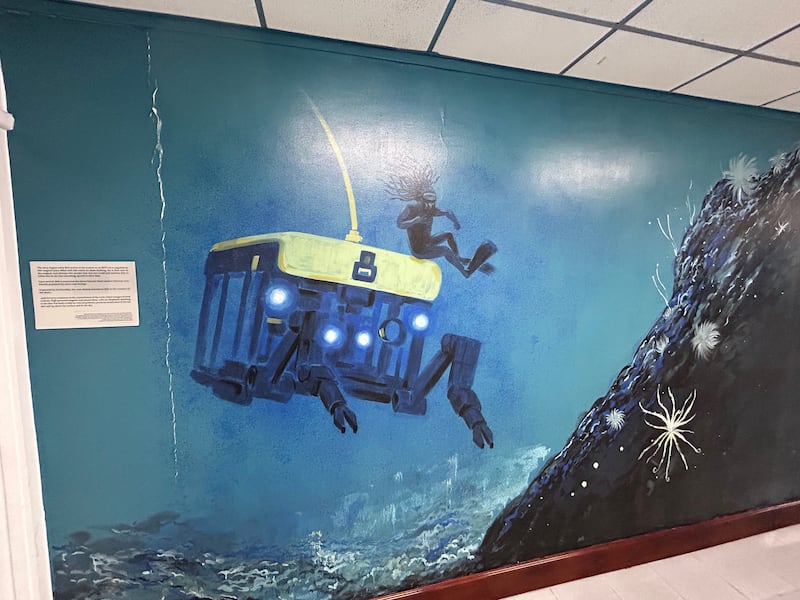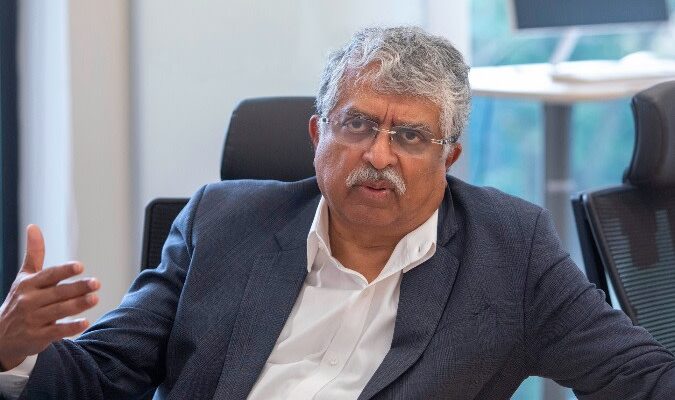BANGKOK – The Trump administration plan to allow mining of deep sea metals in the Pacific Ocean would unequivocally violate international law, experts said, making any attempt to sell the minerals – used in batteries, weapons and smartphones – open to challenge by other nations.
President Donald Trump last month signed an executive order to speed development of the contentious deep sea mining industry, including in off-limits international waters governed by a treaty most nations are signatory to. The order said action is needed to “counter China’s growing influence over seabed mineral resources.”
Unilateral action on deep sea mining by the U.S., legal experts said, also has the potential to weaken its legitimacy in attempting to enforce international law generally, including freedom of navigation in flashpoint waters such as the South China Sea or in combating illegal fishing.
“It is hazardous for the U.S. to throw out the rule book,” said Duncan Currie, an international lawyer, who advises conservation groups and testified to Congress last month on the risks of deep sea mining.
Foreshadowing the executive order, Nasdaq-traded The Metals Company, or TMC, which has been at the forefront of ambitions to exploit the seabed, in March applied for exploration and mining permits under the U.S. umbrella for areas in the Pacific Ocean.
It is attempting to bypass the International Seabed Authority, or ISA, a U.N. organization mandated to set rules by consensus for deep sea mining in international waters. Under ISA jurisdiction, TMC has worked with Tonga and Nauru to explore their allocated areas in a vast swath of the Pacific, but now says the ISA has failed by not agreeing rules after several decades of effort.

Critics of the nascent industry say the copper, cobalt, manganese and nickel found in the potato-sized nodules that carpet parts of the seafloor is already abundant on land. They warn that hoovering the nodules up from depths of several kilometers will cause irreparable damage to an ocean environment still poorly understood by science.
Amid a general retreat by large corporations from commitments to reduce greenhouse gas emissions, deep sea mining companies have recently emphasized defense uses and security of mineral supply. Previously the nodules were touted as a source of metals needed for green technologies, such as electric vehicles, that would reduce reliance on fossil fuels.
According to Currie’s congressional testimony, the arguments for deep sea mining rest on fallacies. China’s dominance in the cobalt and nickel markets is due to it processing those minerals imported from Congo and Indonesia and deep sea mining would not significantly change that equation. Also a growing proportion of batteries in electric vehicles no longer rely on cobalt and nickel
“TMC promised the people of Nauru jobs and prosperity,” said Shiva Gounden, head of Greenpeace’s Pacific chapter. “But it has taken the first chance it got to turn its back on Nauru and it will do the same to any other Pacific country,” Gounden said in a statement.
Gerard Barron, TMC‘s chief executive, said the company’s partnerships with Tonga and Nauru remain “rock solid.”
“They too have been let down by the lack of performance at the ISA,” he told Radio Free Asia.
The case made by Barron and the Trump administration is that deep sea mining is a legitimate freedom in waters beyond national jurisdiction – an idea that has become antiquated as international law evolved over decades.
The U.S. has not ratified the 1982 U.N. Convention on the Law of the Sea, which governs international waters and also established the seabed authority, but in practice recognizes and attempts to enforce its principles.
The U.S. in 1970 also formally recognized that a law of the sea treaty accepted by most countries would establish the rules even for states not a party to it.
“For the last thirty years, the United States has engaged in acts that uphold the object and purpose” of the law of the sea treaty, said Coalter G. Lathrop, director of international law firm Sovereign Geographic, in a blog post this month for the European Journal of International Law.
Even so, the Trump executive order appears to be a new lease on life for The Metals Company.
At the end of March, it had only US$2.3 million cash in the bank and short-term debt of US$10 million. This week it announced a sale of shares in the company that will raise about US$37 million, according to a regulatory filing with the Securities & Exchange Commission. TMC said the money would keep it afloat until it gets a U.S. license for commercial mining.
Its U.S. application has been criticized by France, China and other countries. A coalition of Pacific island civil society organizations called for TMC to be blacklisted by the seabed authority and for Nauru and Tonga to end their agreements with the company.

Currie said the U.N. treaty presents numerous obstacles to TMC realizing its ambitions.
“This casts doubt on whether any metals brought up by TMC under a unilateral permit could be sold,” he told Radio Free Asia.
TMC is a Canadian company while Allseas, the company that owns the ship and mining equipment used by TMC, is Swiss. Both countries, Currie told RFA, have obligations under the U.N. treaty to ensure their nationals don’t participate in breaches of it.
TMC also has an agreement for metals processing with a company based in another treaty signatory nation – Japan.
TMC‘s prospectus for its share sale acknowledges the possibility of legal consequences if it gets a U.S.-issued mining permit.
The ISA and many nations that are signatories to the law of the sea treaty “are likely to regard such a permit as a violation of international law,” it said.
This could “affect international perceptions of the project and could have implications for logistics, processing and market access” including legal challenges in the court systems of treaty member nations.
Attempting a unilateral route to mine the international seabed risks severe geopolitical repercussions “and it could be U.S. interests that get burnt,” said Greenpeace deep sea mining campaigner Louisa Casson.
“Going against the Law of the Sea could trigger impacts far beyond deep sea mining – for maritime boundaries, freedom of navigation and other security interests,” she told RFA.
Edited by Mike Firn and Taejun Kang.


